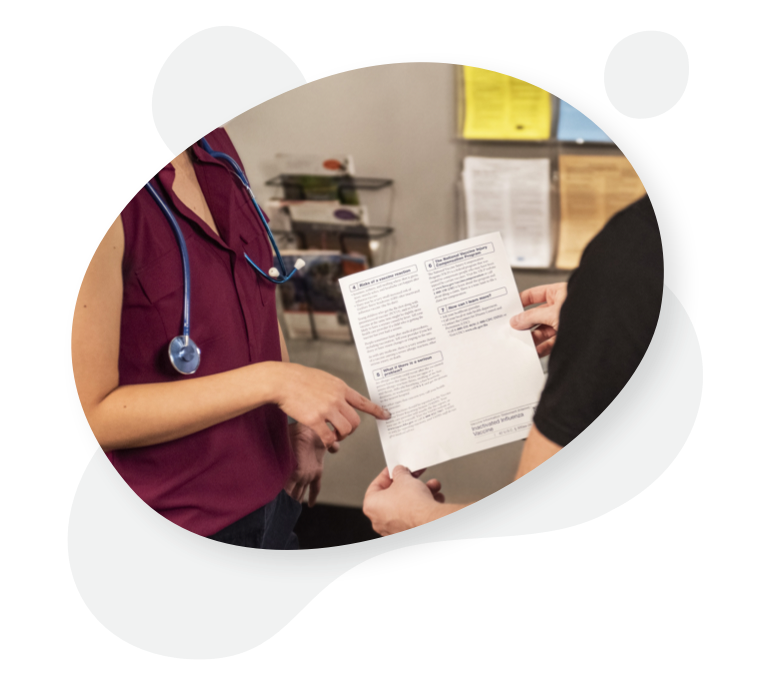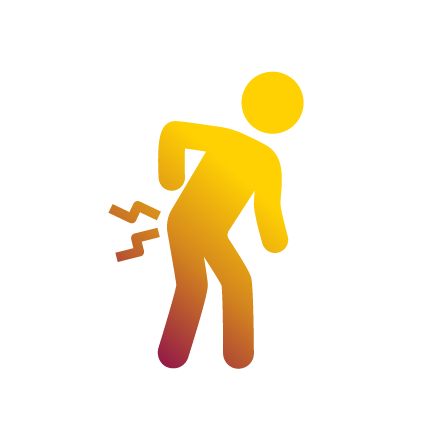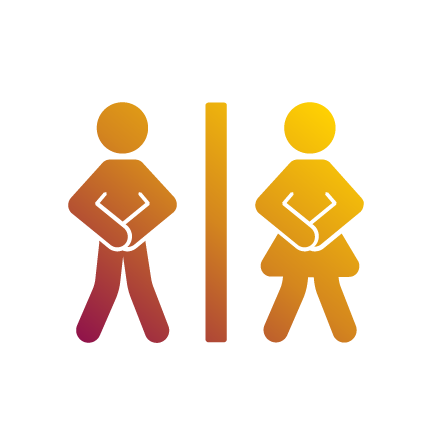RINVOQ (upadacitinib), like all medicines, has both benefits and risks. Below is some information on the possible side effects and other safety information to be aware of while taking RINVOQ. You should also read the full Consumer Medicine Information (CMI) for things to be aware of, and to tell your doctor about, before starting RINVOQ treatment. If you are not sure whether you should start taking this medicine, talk to your doctor.
Do not take RINVOQ if you are:
- Using a biological medicine, including etanercept and adalimumab
- Taking other medicine used to strongly suppress your immune system, e.g., azathioprine, ciclosporin and tacrolimus
- Allergic to upadacitinib, or any of the ingredients listed in Section 7 of the CMI.
What side effects should I be mindful of when taking RINVOQ?
Like all medicines, RINVOQ may cause side effects. Sometimes they are serious, but most of the time they are not.1
The way that RINVOQ works means that it reduces the activity of your immune system.2 This can reduce your body’s ability to fight against infection and may make an infection that you already have worse, or make it more likely for you to get a new infection.1 Because of this, it is important to look out for the signs of infection.
Some important signs of infection to look out for are listed below. You should talk to your doctor or get medical help straight away if you get any signs of serious infection, such as:1
Also, tell your doctor straight away if you notice any of these serious side effects:
Signs of a blood disorder:
- Swelling of the glands in your neck, armpits or groin
Skin:
- Painful skin rash with blisters
- New, or changes to any skin spots, or sores or lesions
- Cluster of warm, red or painful skin sores or blisters on your body
Signs of gastrointestinal (GI) perforation (hole in the bowel):
- Sudden onset of stomach pain
- Fever or chills
- Nausea or vomiting
If you notice any signs of an allergic reaction, tuberculosis (TB), pneumonia, blood clot, heart attack or stroke, go straight to the Emergency Department at your nearest hospital as these are very serious side effects that require immediate medical attention.
It is important to be aware of the signs and symptoms of these side effects which are listed in Section 6 of the full CMI. If you have further questions about this information, ask your doctor or pharmacist.
Some signs and symptoms of an allergic reaction include:
- Difficulty breathing or swallowing
- Chest tightness or wheezing
- Swelling of the face, lips, tongue or throat
- Severe itching of the skin, with red rash or raised bumps
- Severe dizziness or light-headedness
If you experience symptoms of an allergic reaction during
treatment with RINVOQ, stop taking RINVOQ and get emergency medical help right away.
Other side effects not listed above may also occur in some people. For a list of the less serious side effects, please refer to Section 6 of the full CMI. You can also ask your doctor, nurse or pharmacist any questions you may have.
Other important safety information
Before starting RINVOQ, check with your doctor if you:
- Have allergies to any other medicines, foods, preservatives or dyes.
- Have or have had an infection that keeps coming back.
- Have diabetes, as this may increase the risk of getting infections.
- Are 65 years of age or older, as you may be at increased risk of infections, heart problems including heart attack, stroke and some types of cancer.
- Have or have had TB, a history of TB, have been in close contact with someone with TB, have lived or travelled overseas where TB is a problem.
- Have or have had a herpes zoster infection (chicken pox/shingles).
- Have or have had hepatitis B, are a carrier of the hepatitis B virus or you think you may be at risk of contracting hepatitis B or C.
- Have recently been vaccinated or are scheduled for any immunisations such as against herpes zoster.
- Have or have had cancer, including skin cancer and lymphomas (cancer of the lymph glands) or if you are at high risk of developing skin cancer.
- Have had blood clots, for example in the legs (deep vein thrombosis or DVT) or lungs (pulmonary embolism) or have an increased risk for developing blood clots (for example, if you had a recent major surgery, if you use hormonal contraceptives or hormonal replacement therapy, or if a blood clotting disorder is identified in you or your close relative).
- Have of have had an abnormal blood cell count such as low red blood cell count, low haemoglobin or low white cell count.
- Have or have had heart problems, high blood pressure or high cholesterol.
- Have or have had liver or kidney problems.
- Have unexplained stomach pain, have or have had diverticulitis or ulcers in your stomach or intestines or are taking non-steroidal anti-inflammatory medicines.
- Are a current or past long-time smoker.
- Take any medicines for any other condition.
Avoid food and drink containing grapefruit during treatment with RINVOQ as this may increase the risk of side effects.1
Also, tell your doctor:1
- Immediately if you become pregnant while taking RINVOQ.
- If you are taking any other or any new medicines, including any medicines, vitamins or supplements that you buy without a prescription from your pharmacy, supermarket or health food shop. Some medicines should not be taken together with RINVOQ.
Tell any other healthcare professionals (doctors, dentists, pharmacists, or nurses) who treat you that you are taking RINVOQ, including before receiving any immunisations (vaccines). Some vaccines should not be given while you are taking RINVOQ.1 You can read more about RINVOQ and vaccines by clicking here.
For a full list of important safety information and details on possible side effects,
please see the CMI.
Tell your doctor or pharmacist as soon as possible if you do not feel well
while you are taking RINVOQ. You can ask your doctor or pharmacist any
questions you may have. Always make sure you speak to your doctor or
pharmacist before you decide to stop taking any of your medicines.
References: 1. RINVOQ Consumer Medicine Information. 2. RINVOQ Product Information. AC-005092-00. AU-RNQ-250057. August 2025.









